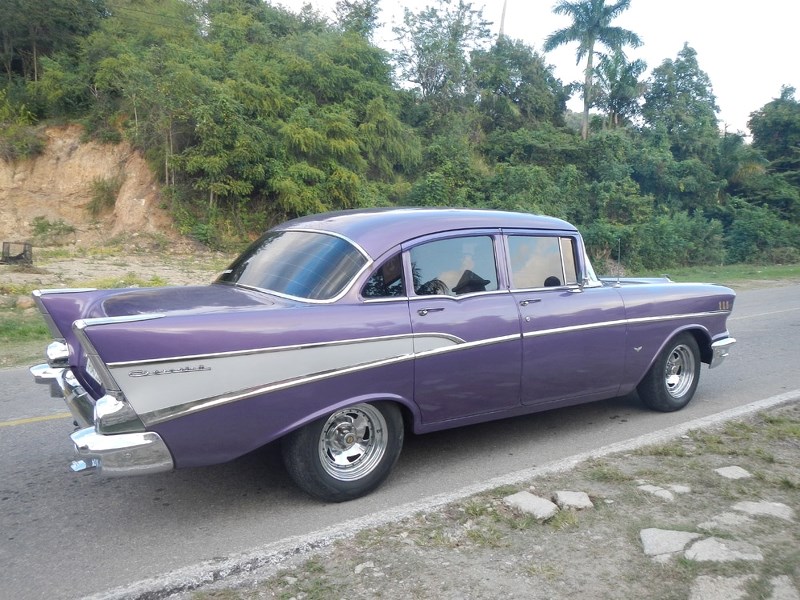Cuba may well be about to change.
U.S. president Barrack Obama has said that he wants to normalize relations between his country and Cuba and this will probably be good for its people. It will be interesting to see in what way it will change one of the most fascinating countries in the world.
My wife Sue had mentioned taking a trip to Cuba as our reward for my finishing the five-year “Quests for Kids”. We wanted to visit Havana, so I found a small resort on the beach one hour from the capital. Over the next eight days, we took a day trip to Havana, visited some underground caves, learned to Salsa and visited Hersey Town, a model community built by Milton Hersey, the chocolate maker.
One of the most interesting things, however, was chatting to some of the locals. Merina was the representative for Sunwing at our resort and every day we would find her in the lobby helping tourists organize their day trips. She told us she was married with two children and her husband worked at a resort in Varadero. They have no car, so she has to hitchhike to work. This is quite common because so few people have their own vehicles that the government has mandated that drivers who have space have to pick up hitchhikers.
Estoban was the guide who took us to the Ballamar caves and, as we drove along, he told us his life story. He went to university to study agricultural engineering. After graduating he worked as a project manager, Communist Party organizer, customs officer and is now a tour guide. He said that the government provides many free things, such as milk for children under the age of seven, but other things, like cooking oil and rice are rationed. He told us that there is no real drug problem in Cuba, but a thriving big black-market in cigars. He has four children and is hopeful that with the lifting of the embargo things will improve for them over the next few years.
Pedro works for the resort and does everything from dance instructor to trail-hike guide. He is 32 years old, trained as a teacher and completed his compulsory time in the army. The hotel pays 400 pesos per month for the work he does; of that he gets 40 pesos and the government takes the rest. He wishes he had access to the Internet, which is currently unavailable to Cubans, but is pleased that at least now he can have a cellphone. He can’t afford to travel, but even if he could there are only certain countries that would allow him to enter. His final comment was that, “In Cuba you cannot dream. We live in a paradise prison.”
Hopefully things are about change for the better for Merina, Estoban, Pedro and all Cubans.




